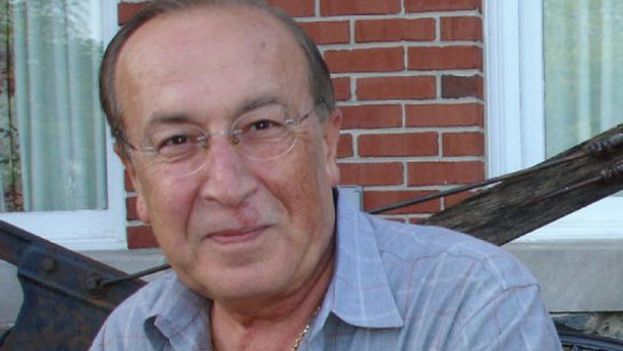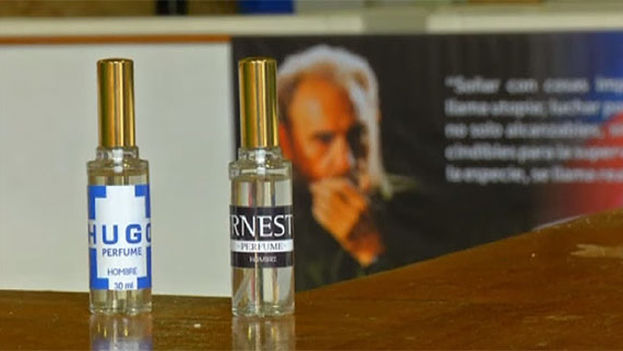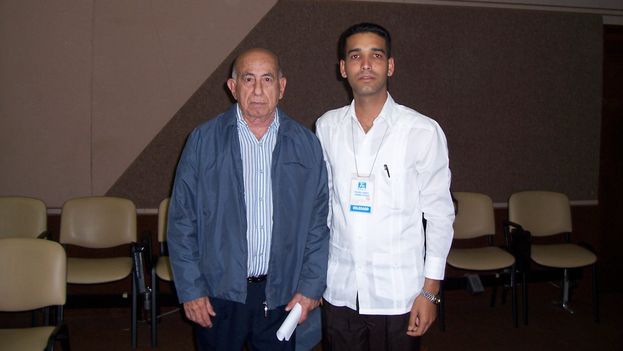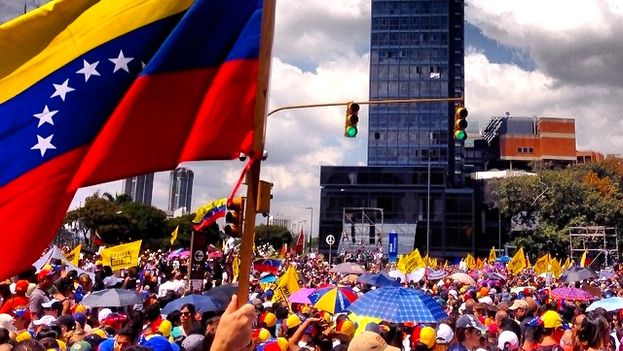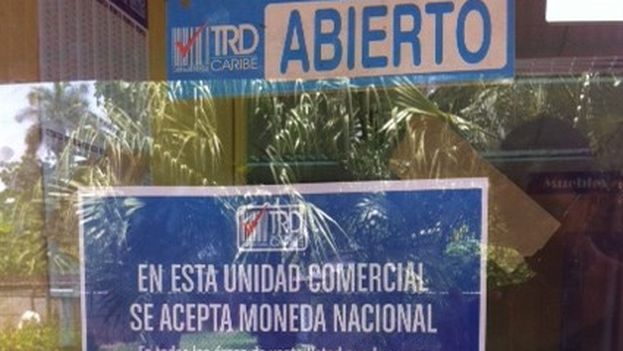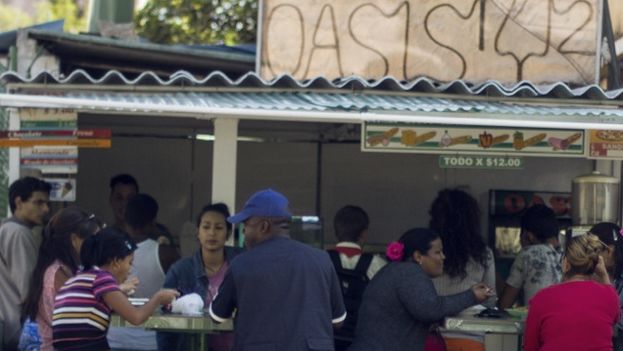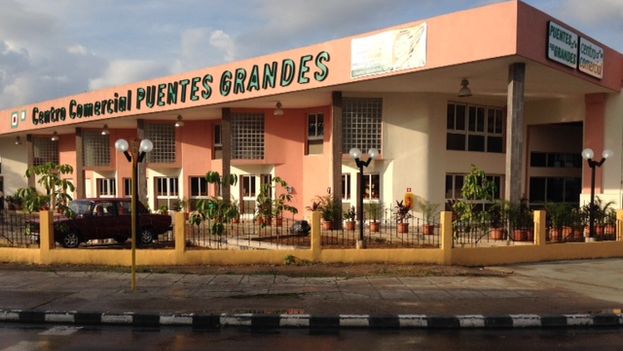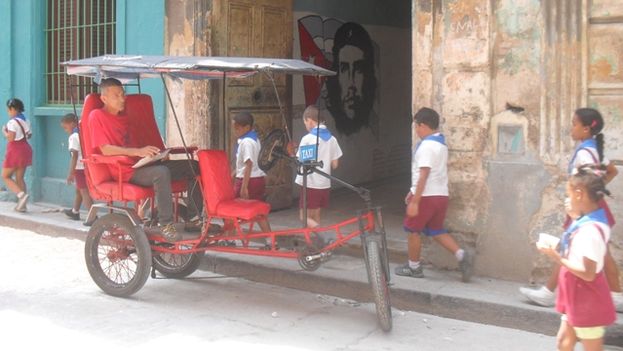14ymedio, Fernando Damaso, Havana, 1 October 2014 — The foreign policy of the Cuban government, which promised to start with democracy and freedom, soon showed its tendency to ally with authoritarian regimes when it suited the government’s interests.
From the first months of 1959 the Cuban government maintained close economic ties and a careful political deal with the Franco regime, although publicly it criticized it. In the case of Latin America, it interfered in the internal affairs of less like-minded countries and gave its political and logistic support to local guerillas, with the objective of weakening the influence of the United States in the region. Most of the attempts were defeated and failed, not receiving the hoped-for popular support, so it became interested in African countries, where it sent military advisors and even regular Cuban troops.
The African adventures were financed by the Soviet Union in the name of “proletarian internationalism” and with the objective of consolidating socialist influence on the continent. Over more than thirty years and at the cost of damaging its prestige, Cuba unconditionally supported Soviet policy in international forums, even when Moscow intervened militarily in Czechoslovakia in 1968 to liquidate the Prague Spring, or when it invaded Afghanistan eleven years later. continue reading
Whatever the “friends” and the friends of “friends” did received immediate support, and everything the “historic enemy”—the United States—and the friends of the “enemy” did was censored. In fulfilling this irrational principle, the Cuban government increased its support for dictatorial or totalitarian governments in Asia, Africa and even in Latin America. This context includes the strange alliance between Cuba and Argentina between 1976 and 1983, when the military was in power in Buenos Aires. Kezia McKeague, a political scientist specializing in Cuba, explains it in the 50th issue of the Bulletin of the Center for the Opening and Development of Latin America (CADAL).
In this context is the strange alliance between Cuba and Argentina between 1976 and 1983 when the military was in power in Buenos Aires
“While relations were not always optimal, despite the conspicuous ideological differences both governments approached each other regarding the sensitive issue of human rights and established a mutual support, to prevent violations of human rights in both countries being considered at the United Nations, specifically before the [Human Rights] Commission,” Kezia McKeague wrote. The Argentine dictatorship’s then ambassador in Geneva, Gabriel Martinez, described this relationship as “optimal” and “extremely close” adding, “The Cubans always, always supported us and we supported them.” As Cuba chaired the movement of Non-Aligned Countries in those years, it also played an important role in the defense this organization mounted for the Argentine regime, as well as serving as “interlocutor” between the Buenos Aires delegation and Eastern Europe.
In those years, Argentina was looking for support for its claim over the Falkland Island, and it and Cuba needed to prevent the issue of human rights violations from being taken to the United Nations Commission of Human Rights: here is the reason for this strange relationship which, ignoring the ideology and principles so often proclaimed, responded to simple short-term interests.
In later years, Cuban foreign policy has maintained the same course, introducing the practice of “solidarity” as well, through offering and sending specialists in health, education, sports and other areas, as well as awarding scholarships for study in Cuba, receiving in return political support in international forums. While, in Latin America Cuba tries to consolidate a common front against the United States, regardless of the different ideologies, politics, and economies of the countries—The Community of Latin American and Caribbean States (CELAC) is the principle instrument—in the international arena it continues to maintain close relations with dictatorial governments and extremist movements, giving them its unconditional support: the dynasty that governs North Korea, some of the African countries with long-standing one-man regimes, the “family” regime in Syria, the totalitarian Belarus, or the Islamic Palestinian movement Hamas.
When voting in international organizations our government always starts from ideological principles
If we follow what is published in Cuba, our government and its representatives in international organizations always start from principles of an ideological character when it comes time to vote: supporting Russia in the annexation of the Crimea and condemning Ukraine for trying to defend its territorial integrity; condemning Israel for bombing Palestinian territory but not saying a word about the Palestinian attacks on Israel; sympathetic to Hamas terrorists and those they call patriots and freedom fighters, while accusing the Hebrews of genocide; opposing the bombing of the so-called Islamic State; applauding constitutional changes in “brethren” countries, where their presidents, intoxicated by the enjoyment of power, seek to be reelected indefinitely; they do not hide their sympathy for the Colombian guerrillas and, ultimately, they are against those who question and criticize, albeit respectively, and in favor of those who accept and applaud unconditionally.
Although it is undeniable that, in recent times, the Cuban government has maintained a more pragmatic foreign policy, managing to establish relations with countries with different political, economic and social regimes, and abandoning costly and unproductive offshore military adventures, it has not yet been able to develop a serious and viable policy of normalizing its relations with its principal neighbor, the United States. This constitutes, without a doubt, its principal unresolved foreign policy matter.

